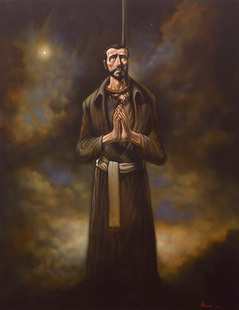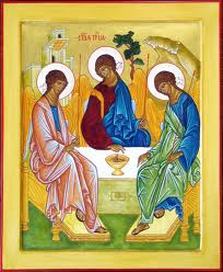
I only saw glimpses of the ceremonial but it did get me thinking. Here was a man who died 500 years ago, in a battle, competing for the crown on England, betrayed by people who had sworn loyalty to him, buried uncermoniously in a franciscan monastery, Greyfriars, that had been destroyed during the Reformation and whose bones then lay underneath a car park in Leicester. Now he was being reinterred with all the dignity due to a monarch but it was the human being that I was aware of. What would all this pomp and ceremony mean to him now. He had gone the way of all flesh. But this pomp and ceremony had become part of his story and perhaps that was the uncanny thing. Now that we have seen his remains, seen his direct descendants from whose DNA scientists were able to determine that the skeleton they had found was indeed Richard III, been present at his reinternment, albeit through television, we have become part of his story. This is a story that didn't end with death but now has a chapter written 500 years after that event. It would seem to me that this is true for all of us - life doesn't end in death. And I'm not thinking here of an eternal destination in heaven or paradise but that our story, our influence lives on in the lives of those we have touched and in one sense will never be complete. We are indeed part of a great global story in which we are all implicated.
Things were very different when Richard died - everyone was Catholic, the Reformation hadn't taken place, and though he was originally buried uncermoniously it would have been with Catholic rites and prayers. Now he is buried in an Anglican Cathedral and the internment rites were carried out by the Archbishop of Canterbury. All of this would have been unknown to Richard though Cardinal Kevin Nichols did speak at the reception of his body into the Cathedral and said a requiem mass for him during the days he lay in state. But as the Cardinal noted all things are connected. The stones from the Friary pulled down at the Reformation were used to extend the nearby Church into a Cathedral so in a way Greyfriars also still lives and our denominations are intermingled in all sorts of way. Thank God the days of enmity are over and Christian denominations are working together.
It also struck me how circumstantial life is. Here was a man who had been king through intrigue and deceit, who died childless and yet has thousands of descendants still living, some of them being second cousins and now seventeen times removed. It was amazing the number of media people interviewed who were related to him! It seems that the Plantagenets married into English gentry and sometimes commoners so that there are many descendants - if things had been different could any of their ancestors have claimed the English throne and would they now be royalty. What would Richard have thought if he had known that his descendants would be ordinary people doing ordinary jobs? Would he have felt his family belittled? One of the two direct descendants of Richard who gave DNA samples is a carpenter and made the coffin in which his illustrious ancestor was buried. All this too has become part of his story.
And there's a lot of 'what ifs' in the story. What if Henry Tudor had not won at the Battle of Bosworth Field? There would have been no Henry VIII, perhaps no break with Rome, no sacking of the monasteries, a different royal family on the throne of England today. Of course 'what ifs' are part of all our stories. What if my grandfather had not been struck by a beautiful young woman descending from a tramcar in Glasgow and not fallen instantly in love with her? What if I had not been born Christian but Jewish or Muslim or Buddhist? All possibilities.
Perhaps what I'm left with in the Richard story is that life is as it is, that we're part of a story much greater than our individual existences, that status and prestige are of no lasting importance. Our precious human existence is a gift to be used well for its influence extends much further than we realise - for good or for ill.





 RSS Feed
RSS Feed
